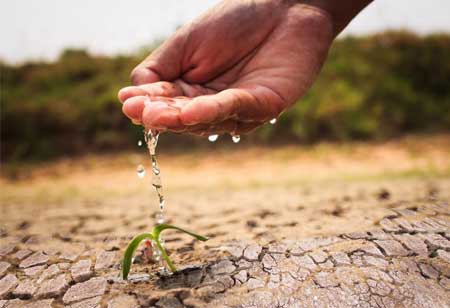Biochar addresses water scarcity, enhances soil fertility, and reduces reliance on chemical fertilizers, offering sustainable solutions for agriculture.
In a world grappling with the impacts of climate change, water scarcity poses a significant challenge to agricultural sustainability. Balancing crop growth while managing water resources often becomes a hurdle for farmers. Within this context, biochar has emerged as a powerful solution.
Derived from organic materials such as wood chips or crop residues through controlled pyrolysis, biochar plays the role of a soil conditioner and a strategic ally in overcoming drought. With its unique sponge-like properties, biochar transforms arid fields into resilient water reservoirs. Among various features, moisture retention capabilities are a game-changer akin to a microscopic sponge that significantly reduces evaporation. Research indicates a notable rise in soil moisture, with an increase of up to 50 percent, proving particularly advantageous in regions facing water scarcity.
In addition, biochar transcends its water-holding capacity and serves as a nutrient nurturer by providing a habitat for beneficial microbes, facilitating the decomposition of organic matter, and enhancing nutrient release. This fosters plant growth and improved soil fertility which leads to increased crop yields with minimal water availability. Biochar also acts as an erosion deterrent, protecting topsoil from runoff during rainfall. This contributes to sustainable farming by promoting optimal soil conditions, reducing nutrient loss, and fostering long-term environmental resilience.
Biochar's impact reaches beyond boosting yields and water retention. Its ability to enhance soil fertility and nutrient retention holds the key to reducing reliance on chemical fertilizers. This presents dual advantages which encompasses substantial cost savings for farmers and a decrease in environmental pollution resulting from fertilizer runoff. The potential for such an impact positions biochar as an intelligent business proposition, capable of transforming agricultural practices and fostering positive environmental outcomes.
Biochar offers a significant benefit by aiding carbon sequestration in the soil, and actively combating climate change, a crucial factor contributing to water scarcity. Additionally, the production of biochar from agricultural waste aligns with circular economy principles. This approach contributes to mitigating waste management challenges and decreases the strain on landfills. The impact of carbon sequestration and sustainable waste utilization positions biochar as an environmentally conscious solution.
Despite its promise, biochar adoption poses challenges such as initial costs and the need for further research on optimal application rates for specific soil conditions. However, ongoing efforts in research, innovation, and policy support position it as a strategic tool for farmers combating drought. Considerable investments are being directed towards biochar startups due to their potential to provide innovative solutions for sustainable agriculture, particularly in enhancing soil quality and water retention.
As technology advances, biochar transforms from a mere soil amendment into a revolutionary practice in water-scarce agriculture with the support of investors betting on a greener and more resilient tomorrow.


